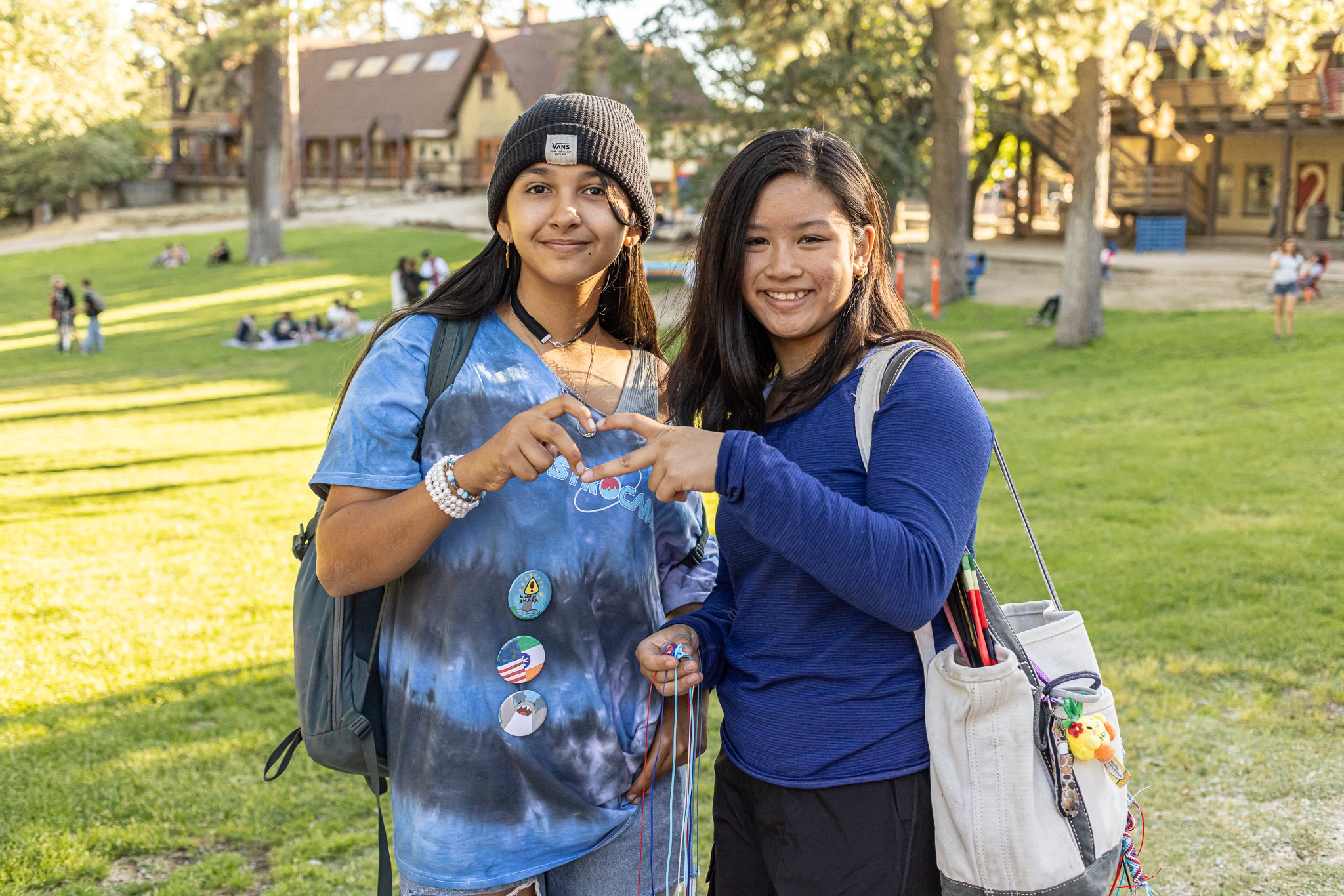Thinking about sending your child to summer camp but not sure where to start? You’re not alone. With so many programs out there—local day camps, specialty camps, sleepaway adventures—it can feel overwhelming to figure out what will be the best fit for your child.The truth is, there isn’t one “perfect” camp for every child. The right camp is the one that aligns with your child’s personality, interests, and readiness for independence. That’s why we created an episode of The Summer Camp Breakdown, where some of our directors Sydney, Paul, and Jacqui share everything parents need to know about choosing the right camp. You can watch the full conversation on YouTube, but this guide offers a practical checklist and deeper insights to help you feel confident in your decision.
1. Sleepaway or Day Camp?
One of the first questions to consider is whether your child is ready for overnight camp or if a day program makes more sense.
Day camps are great for younger kids or those not quite ready to be away from home overnight. They offer structured activities, friendships, and skill-building while still giving kids the comfort of returning home at night.
Sleepaway camps provide a deeper level of independence and community. Campers live with peers in cabins, eat meals together, and spend the whole day immersed in camp life. This experience often accelerates growth in confidence, problem-solving, and social skills.
Ask yourself: Has my child successfully spent nights away from home (at sleepovers, with relatives, etc.)? Do they show curiosity about being more independent?
2. Activity Options
Every child is unique—some gravitate toward athletics, others toward science, art, or outdoor adventure. Camps range from general programs that include a little bit of everything to specialty camps that focus on one area, like performing arts, STEM, or sports.
The key is balance: finding a camp that matches your child’s passions while also offering new opportunities to stretch themselves. A soccer-loving child might thrive at a sports camp, but they might also enjoy a general camp where they can try rock climbing, ceramics, or drama for the first time.
Ask yourself: What activities light my child up? What new experiences would challenge them in a positive way?
3. Camp Philosophy and Culture
Camps aren’t just about what kids do—they’re about how they learn and grow. Each camp has its own philosophy. Some emphasize competition, while others focus on collaboration and community. Some are faith-based, others are outdoor-focused, and some center around creativity and self-expression.
Ask camps about their mission and values. Do they emphasize teamwork, resilience, creativity, or leadership? The closer a camp’s culture matches your family’s values, the more consistent the experience will feel for your child.
Ask yourself: What do I hope my child gains from camp—confidence, independence, social growth, new skills, or a bit of everything?
4. Safety and Accreditation
Safety is every parent’s top concern, and rightly so. Look for camps accredited by the American Camp Association (ACA) or another recognized body. Accreditation means the camp meets rigorous standards in areas like health, safety, staff training, and programming.
Don’t hesitate to ask direct questions:
- What is your emergency protocol?
- Do you have medical staff on-site?
- How do you handle homesickness or behavior challenges?
- What’s your camper-to-staff ratio?
A safe camp environment allows kids to take risks (like climbing a ropes course or performing in front of peers) without fear of being unsupported.
Ask yourself: Do I feel confident this camp prioritizes safety as much as fun?
5. Staff Qualifications and Training
Great camps are built on great staff. Counselors are the role models who set the tone, build cabin community, and support campers through challenges.
Ask camps about:
- How staff are recruited, screened, and trained.
- What kind of supervision ratios they maintain.
- How counselors are prepared to handle everything from first-day jitters to conflict resolution.
The best camps invest heavily in training staff not just in activities, but in child development, communication, and leadership.
Ask yourself: Do I trust this camp’s staff to model the values and behaviors I want for my child?
6. Emotional Readiness
Every child develops at their own pace, and that includes readiness for camp. Nervousness is normal—but readiness is about whether your child is willing to try new things, meet new people, and spend time away from familiar routines.
You can practice at home by giving your child small independence-building opportunities: packing their own bag, making decisions about daily routines, or having sleepovers with friends or relatives. These experiences give them confidence before camp begins.
Ask yourself: Is my child ready for a new adventure, even if they feel nervous at first?
7. Camp Size and Session Length
Camps vary widely in size. Some serve hundreds of campers at once, creating a bustling, high-energy atmosphere. Others are smaller, offering a more close-knit community. Think about what environment will feel most comfortable for your child.
Session length also matters. First-time campers often do well with shorter sessions (one or two weeks), while returning campers may be ready for longer stays that allow them to deepen friendships and skills.
Ask yourself: Will my child thrive in a big, lively camp or a smaller, more intimate one?
8. Parent Communication
Parents need confidence too. Ask camps how they’ll keep you updated. Some send daily photo galleries, others write weekly newsletters, and many provide direct contact in case of emergencies.
The goal is balance: enough communication to reassure parents while giving kids space to grow independently.
Ask yourself: Will I feel comfortable with the camp’s communication style?
9. Visit (or Virtually Tour) the Camp
If possible, visit the camp before enrolling. Walking the grounds, seeing the cabins, and meeting staff can give you and your child a sense of what to expect. If an in-person visit isn’t possible, look for virtual tours, open houses, or video introductions.
Ask yourself: Can I picture my child here, happy and engaged?
Final Thought
Finding the right camp isn’t about picking the “best” camp overall—it’s about picking the best camp for your child. The right fit will be a place where they feel safe, supported, and inspired to try new things.
When camp is a good match, kids don’t just come home with stories—they come home with more confidence, independence, and resilience than they had before.For an even deeper dive into how to choose the right camp, watch our podcast episode of The Summer Camp Breakdown on YouTube, where directors Sydney, Paul, and Jacqui walk through every step of the decision-making process for parents.
Ready to Find the Right Camp?
Choosing the best camp for your child doesn’t have to feel overwhelming. At AstroCamp, we blend STEM exploration, outdoor adventure, and a supportive community that helps kids grow in confidence and independence. Explore our dates and rates to see which session is the right fit, or reach out to our team with questions—we’re here to help you find the camp experience your child will never forget.

